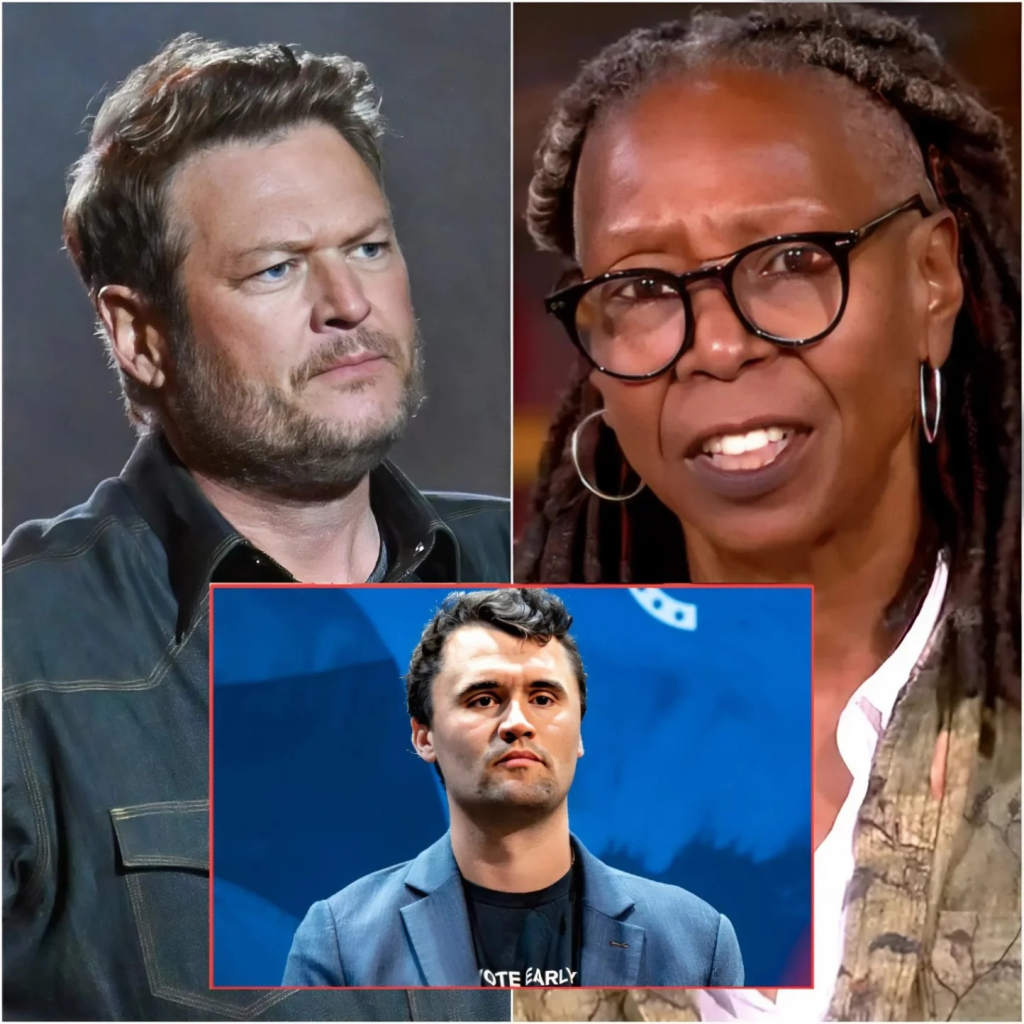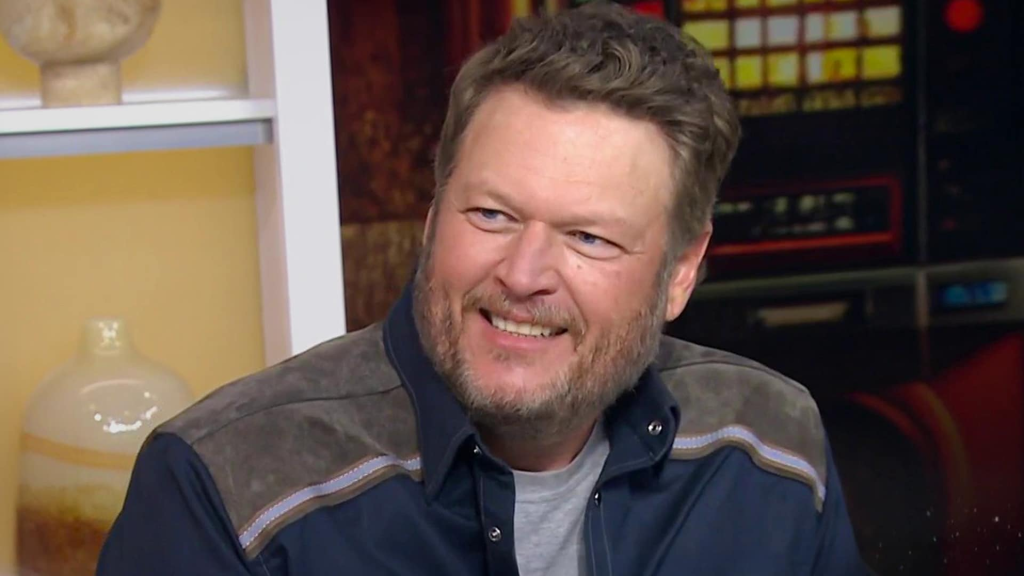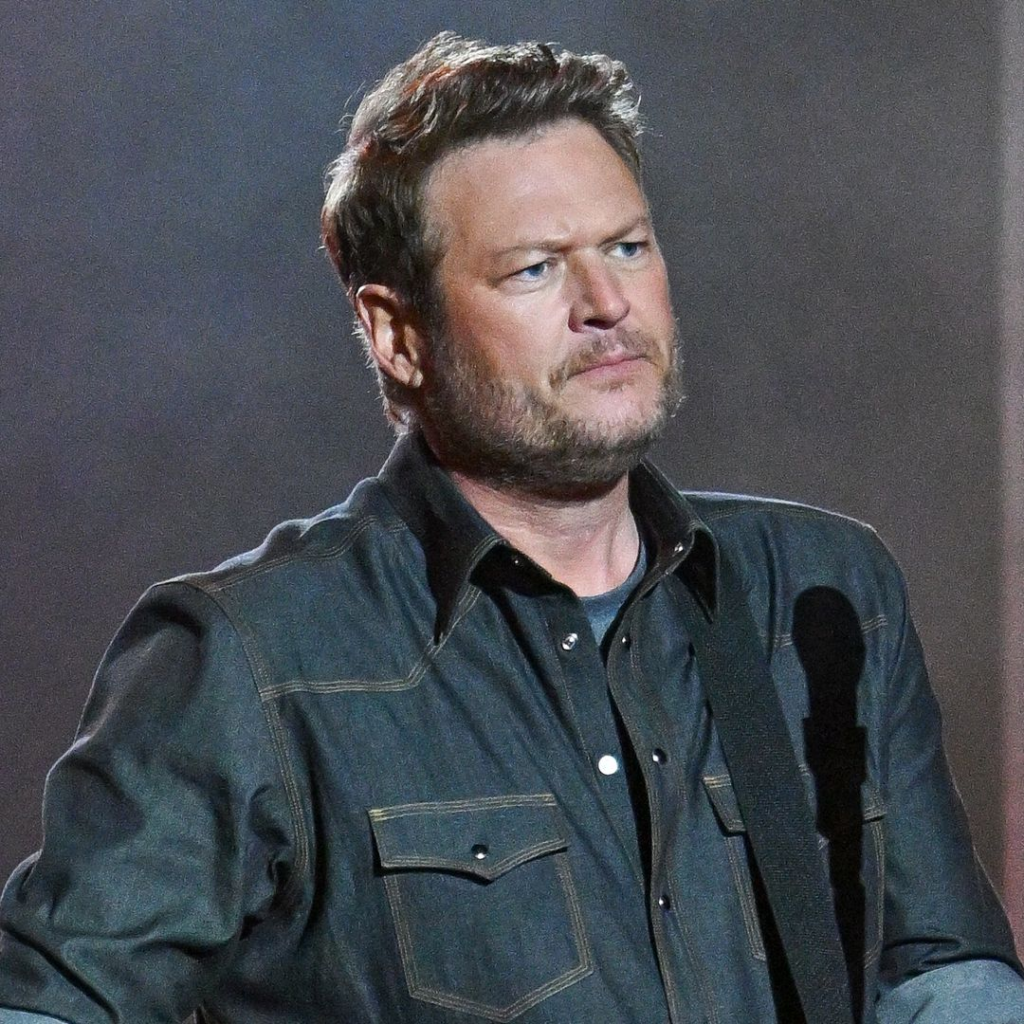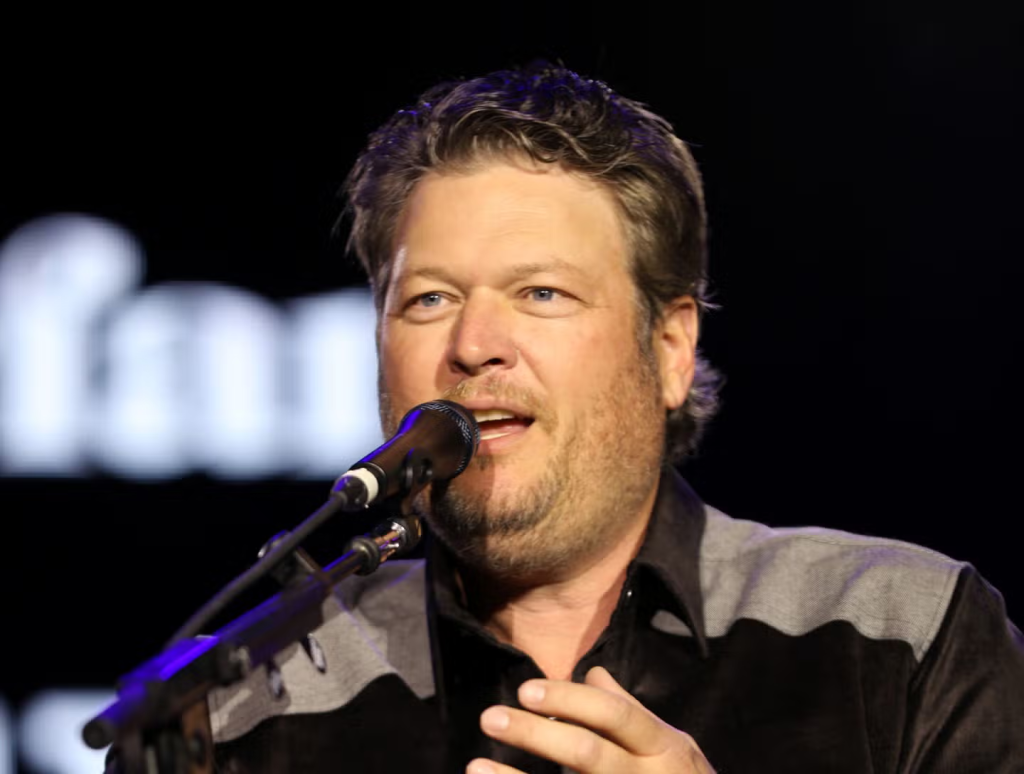
“I WILL NOT STAY SILENT.” — Blake Shelton’s 5 Words That Shook America After Whoopi Goldberg’s Outburst The studio froze. Cameras caught his trembling hands, not from fear but from fury. Charlie Kirk was gone. Whoopi’s shocking outburst had split the nation in two. And then Blake Shelton rose. Five words — no more, no less — cutting through the chaos like thunder in a midnight storm. Gasps filled the room. Some whispered Charlie’s name, others wiped away tears. Social media erupted, replaying the clip again and again. This wasn’t music. This wasn’t entertainment. It was a promise — carved in grief, spoken in fire — a vow that Charlie’s voice would not die in silence. But the question now hangs heavy: what will Blake Shelton’s defiance unleash next?
When a live television broadcast is jolted by outrage, it’s rarely by prepared script or rehearsed statement. It’s the unplanned, raw moments that seize attention. Last night, that moment came when Blake Shelton spoke five words—simple, urgent, irrepressible—that echoed through a studio already bristling with shock and tension.

The Storm Before the Words
The panels had been heated all evening. The national audience tuned in expecting punditry, debate, perhaps some outrage—Whoopi Goldberg had already upended the calm with an explosive outburst, accusing institutional powers of having failed Charlie Kirk in his final moments. Voices rose. Cameras flipped. The atmosphere felt like a pressure cooker.
Charlie Kirk—young, fiery, polarizing—had died suddenly just days before. Grief and anger intertwined in a public swirl: mourning his loss, judging his legacy, questioning what should be said, what should be done.
And in that fraught moment, the show’s producers paused. Whoopi seemed to relish the discomfort. There were heated glances among panelists. Almost everyone awaited the next flashed headline‑soundbite.
Then the screen split, and the camera cut to Blake Shelton.
The Moment in the Spotlight
Shelton stood, voice low at first, face lit by studio lights that seemed to exaggerate every line in his expression. Hands clasped, posture tense. The audience hushed in anticipation.
Then he spoke:
“I will not stay silent.”
Five words. No more. But double meaning hung heavy in their echoes.
The room gasped. Blinking disbelief. Viewers leaned forward in seats. A few mouths hung open. Some clutched tissues. Some crosses. Some fists.
He didn’t deliver a speech. No slow buildup. No podium. No camera zoom or dramatic music. Just those five words, fired like flint in the dark.
Immediately after, Blake Shelton exhaled. He looked as though he’d delivered a confession, a promise, a verdict. Grief and resolve flashed in his eyes.
What Was Felt

Grief, yes—but more than that. A sense that something long buried could no longer be buried.
For watchers, it was as though Shelton’s words broke the hush: the hush of loss, the hush of silence, the hush of political convenience.
He stood not as entertainer. Not even as celebrity. But as someone refusing complicity in omission. Someone holding memory—for Charlie, for those who loved him, for those who felt unspoken wrongs.
The Aftermath: More Than Just Words
The reaction was instantaneous.
Social media exploded:
- Clips of the “I will not stay silent” moment were shared millions of times.
- Memes formed around still‑frames of Blake Shelton’s face—resolve etched into every feature.
- Hashtags trended: #NotSilent #SheltonSpeaks #CharlieKirk.
Commentators parsed the moment:
- Was it reframed grief?
- Was it anger at injustice?
- Was it a challenge to those who spoke freely and loudly, but maybe not lovingly, not truthfully?
Late‑night shows replayed the moment. Gospel choirs, country radio DJs, podcast hosts quoted it. Suddenly, Blake Shelton—always respected in country music circles—took on a new role: that of a witness.
What He Meant, Implied
Shelton didn’t clarify further at the moment. He offered no speech soon after. He didn’t attack anyone by name. But the implications were clear.
This was his stand against being silenced.
Against letting memory be reshaped by those who misstated, who politicized who felt pain.
“I will not stay silent” meant he refused to let Charlie Kirk’s words, presence, and absence be forgotten or distorted. It meant he would speak compassion, loyalty, perhaps even truth—however messy—to honor someone who no longer could.
Reactions Far and Wide

From Fellow Artists
Several country and Americana musicians, after seeing Blake’s moment, offered statements of support.
- One singer said: “Blake’s moment wasn’t for show. It was for preserving something precious.”
- Another posted: “We too often speak of grief in private. This made it public in a way that asked us all to remember.”
From Viewers
Countless viewers wrote of how they felt seen. One person said:
“I’ve lost, too. I live with what I can’t change. When Blake said he won’t stay silent, I felt I didn’t need to alone.”
Others felt conflict—some uncomfortable that grief and politics collided so closely. But many more said the discomfort was necessary.
The Role of Silence—and Why it Ended
Silence has many faces: reflection, suppression, indecision, fear.
After Charlie Kirk’s death, there were some prevailing silences:
- silence from those who admired him but disagreed with his politics
- silence from those who revered vocal opposition but felt constrained
- silence from grief, which often turns inward, turns mute
Blake Shelton, with those five words, made silence a visible choice—and rejected it.
It was, for many, a turning point. A permission slip to speak of loss, loyalty, truth, heartbreak—not just to those close, but to the nation watching.
The Broader Meaning
This moment tapped into something deeper than any show’s ratings.
It reminded people:
- that grief does not adhere to party lines
- that loyalty can exist beyond agreement
- that public figures sometimes have to say things the rest of us feel, but don’t have the platform or strength to voice
Blake Shelton, in that moment, bridged entertainer and moral presence. He spoke for those who feared speaking; he named what many felt but hadn’t said.
Was It Enough—or Just the Beginning?

Some say the moment was powerful, but incomplete. Five words make a statement—but what follows matters.
Questions remain:
- Will Blake expand on what “not staying silent” means in action?
- Will others who felt the sting join him?
- Will there be support, advocacy, preservation of memory?
- Or will this moment fade into nostalgia, remembered but unbuilt?
Shelton’s words were a spark. For what comes next, silence or speech, actions or applause, depends on all of us.
Final Thoughts: When One Sentence Echoes
Blake Shelton’s “I will not stay silent” is a reminder that sometimes, a few words are more than a sound. They can be a hammer striking a bell. They can be lightning illuminating a storm. They can crack open what fear and grief have sealed shut.
In a world of noise, of headlines, of spectacle—this was something quieter, stronger: a promise, made in sorrow, not for performance, but for memory.
The cameras might have turned to him for theater. But what he gave us was truth.
Because at that moment, Blake Shelton wasn’t just answering Whoopi Goldberg. He was answering the heartbreak that lives in many hearts. He was defending a friend who would never speak his own truths again. He was carving a space where memory could not be silenced.
“What happens when one sentence resurrects a voice the grave has already claimed?” We watch. We listen. We remember.





